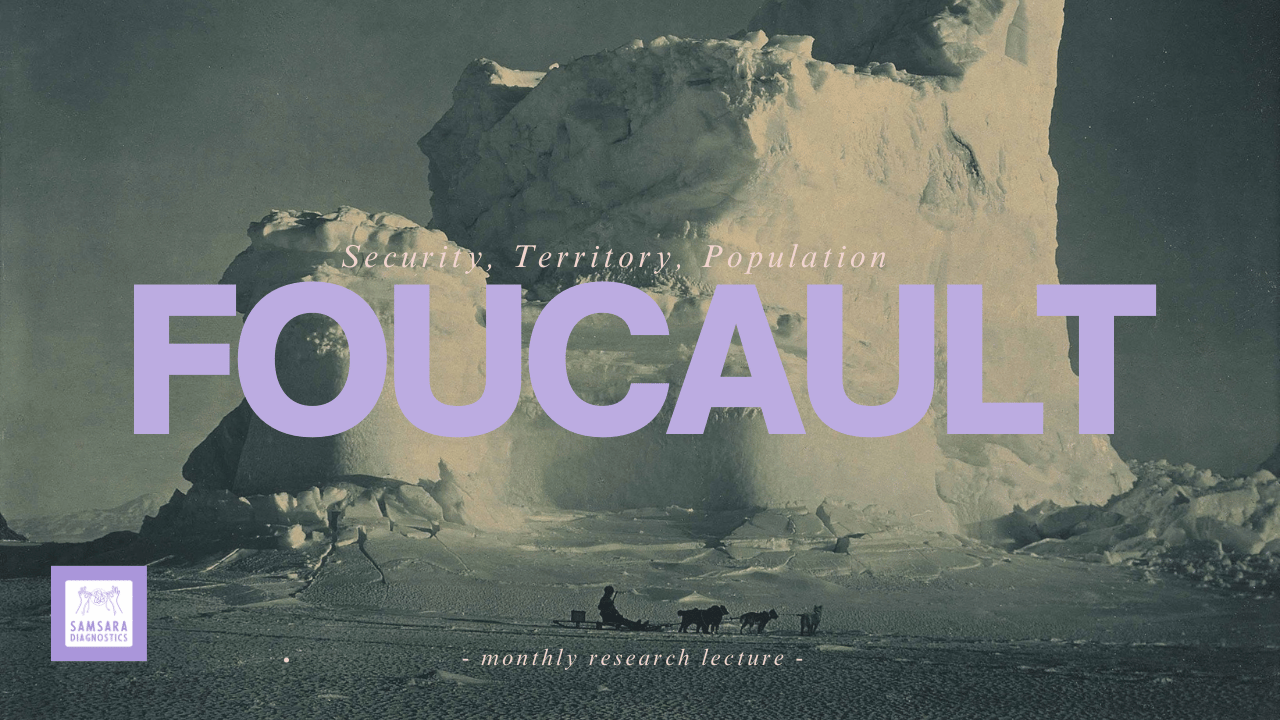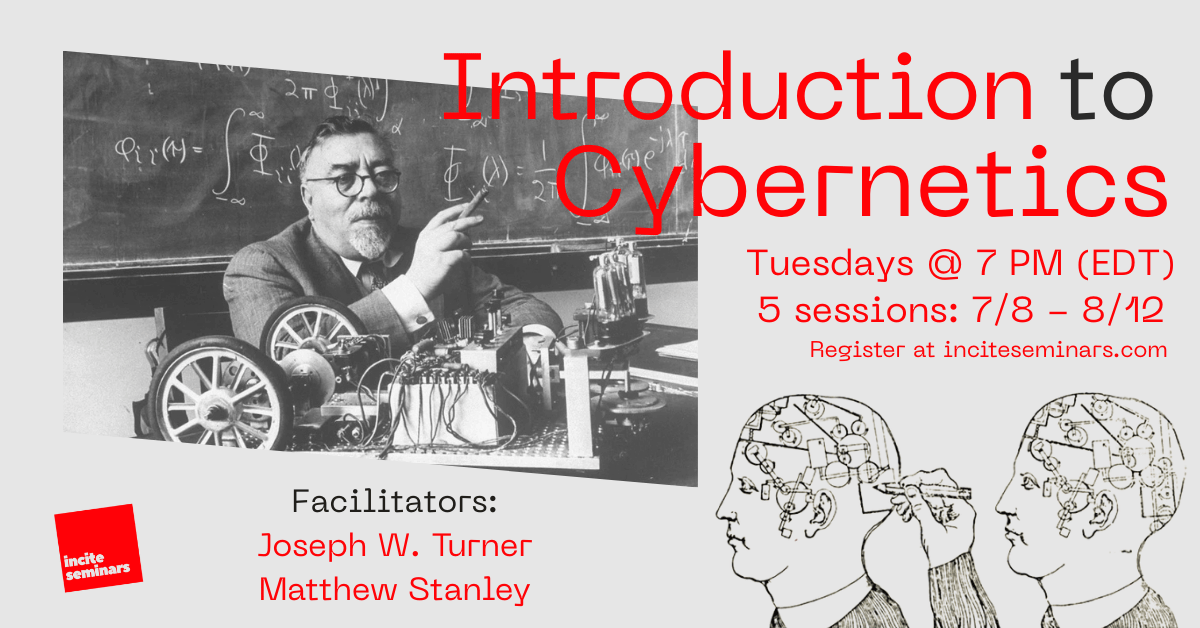Security, Cybernetics, and the CIA
Enjoy last month's lecture for free, plus some updates
I’m coming back from a much-needed four-day weekend with my family. The month of May has mostly been sleeping, working, and blackjack dealer school (we’ll talk about it another time), and June is shaping up to be much of the same. So, in lieu of another long form post, this email is an announcement and some updates about Moloch Theory in the coming weeks. Thanks for tuning in!
This month’s lecture is cancelled, but you can watch last month’s.
Sign up for the ‘Intro to Cybernetics’ seminar I’ll be co-leading in July
I’m presenting a paper at a conference on June 7 in Charlotte, NC
Skip to the end to see what I’m reading!
Monthly Lecture Series
This month’s and next month’s lectures are cancelled. They were going to be about Illich’s Medical Nemesis and Agamben’s Homo Sacer. I will try to make up these lectures at some point in the future. Also, keep an eye out for August’s lecture on Yuk Hui’s The Questioning Concerning Technology in China.
However, as a gift and a thank you, I am making April’s lecture on Foucault’s Security, Territory, Population available to all subscribers regardless of paid status. To access future lectures like this one, as well as discounts on upcoming learning experiences, please consider upgrading to a paid subscription at Moloch Theory.
Upcoming
Seminar: Introduction to Cybernetics
I’m excited to announce that I’ll be co-leading a seminar with Joseph William Turner over at Incite Seminars, called “Introduction to Cybernetic Theory.” If the word ‘cybernetics’ scares or confuses you, this seminar is for you. Joseph and I will clearly explain this simple but powerful field pioneered in the early 20th century. More than that, we will be exploring the relevance that feedback loops and adaptive systems have for understanding our contemporary context.
Paper presentation in Charlotte, NC on June 7
If you’re in the Charlotte, NC area on June 7th, don’t be shy about attending The Davenant Institute’s “What is Christian Freedom?” conference where I’ll be presenting my paper “When Freedom isn’t Liberating: Practicing Christian Freedom in a Post-Disciplinary Society.” I’ll likely share some snippets from that paper here on Moloch Theory in the future.
What I’m reading right now
While I’m driving back and forth from the casino for dealer school each evening, I’ve had plenty of time to pound through some books using my Speechify app (sign up with this link to help me get my subscription for free!).
Here’s what I’ve been enjoying lately:
The Jakarta Method by Vincent Bevins
This book has been a brutal read — you likely aren’t aware of the instrumental role that the CIA had in the 1955-56 killings in Indonesia following Suharto’s rise to power. In the month’s following an incident with the military, somewhere between 500k to a million suspected communists were disappeared, murdered, and piled in mass graves, with nearly a million more people forced into concentration camps. The CIA provided the new Indonesia regime with kill lists, and withheld foreign aid until the operation was carried out. At the time, the communist party in Indonesia was the third largest communist party in the world, but was entirely unarmed and was electorally popular.
This book continues my deep dive on the history of the CIA, counter-insurgency, and foreign interventions, including American War Machine by Peter Dale Scott and Surveillance Valley by Yasha Levine. This line of inquiry has become increasingly important for understanding of power’s contemporary strategy.
An Abundance of Caution by David Zweig
I met David Zweig at a book launch party in Berkeley last month, and I’ve been impressed with his investigative work in An Abundance of Caution: American Schools, The Virus, and a Story of Bad Decisions where he provides a well-documented history of how Covid school closures in the United States not only did not follow previously formulated pandemic plans but also ignored clear evidence from Europe’s alternative approaches. Zweig is an astute reader of scientific literature, but also explores the people dimension of the problem — how did the actual decision-making process work, and how did it fail so badly? As someone who didn’t have children at the time, the school closure saga was off my radar, but Zweig combines scientific investigation with human stories and personal narrative that make this book exceptionally strong.
After the Empire by Emmanuel Todd
French demographer Emmanuel Todd’s 2002 book feels exceptionally prescient, and it advances a provocative thesis which feels more relevant than ever — as democratic self-determination advances around the world, other nations need the United States less and less, but what if the United States can’t accept that? Todd tries to read the most important elements of American foreign policy through the lens of a fading empire acting increasingly erratic in order to maintain its position. The foreign adventures of the early 2000’s and 2010’s foment the chaos which America then uses to justify more interventions, keeping regions divided and fostering relations of codependence which allow the US to forestall its growing obsolescence. You can expect an extended piece from me about this thesis, and especially how it relates to the history of the CIA, but needless to say that this idea of “history forestalled” has become a guiding thread in my reflections lately.
Thanks for being a subscriber at Moloch Theory, where I’m mapping the contemporary strategies of power as I wrestle with my place in the world. I hope that this work inspires and stimulates your own reflection. Moloch Theory lives within a broader eco-system of independent intellectual projects flourishing outside the walls of the academy. Please consider supporting that ecosystem by subscribing to other fellow travelers and/or upgrading to paid subscriptions.






